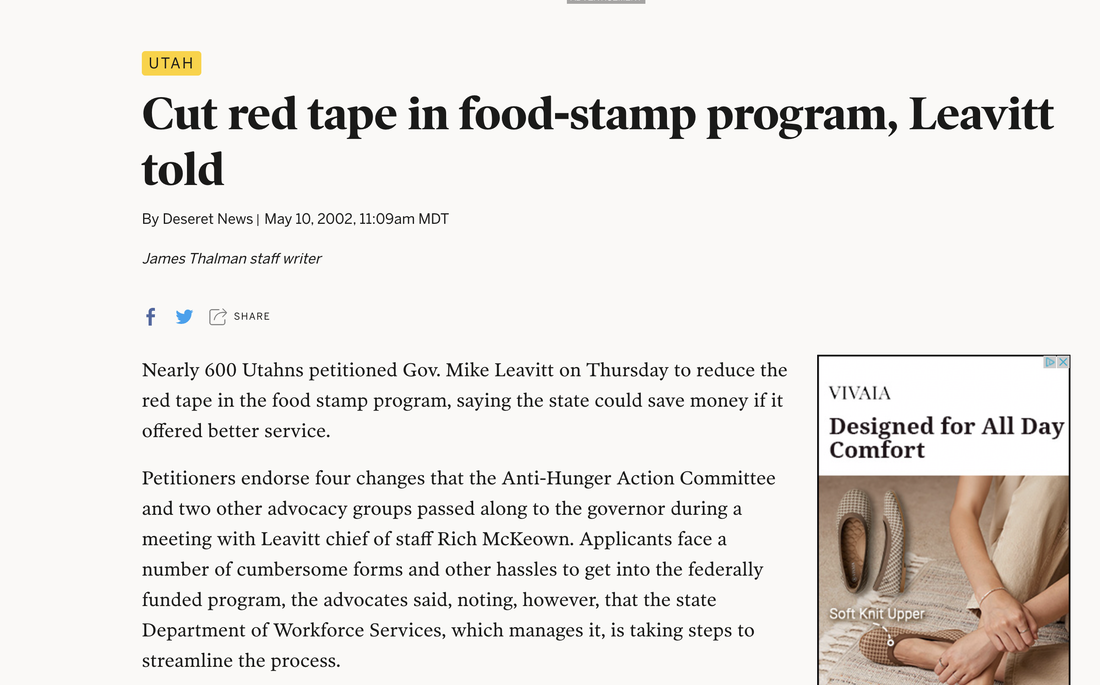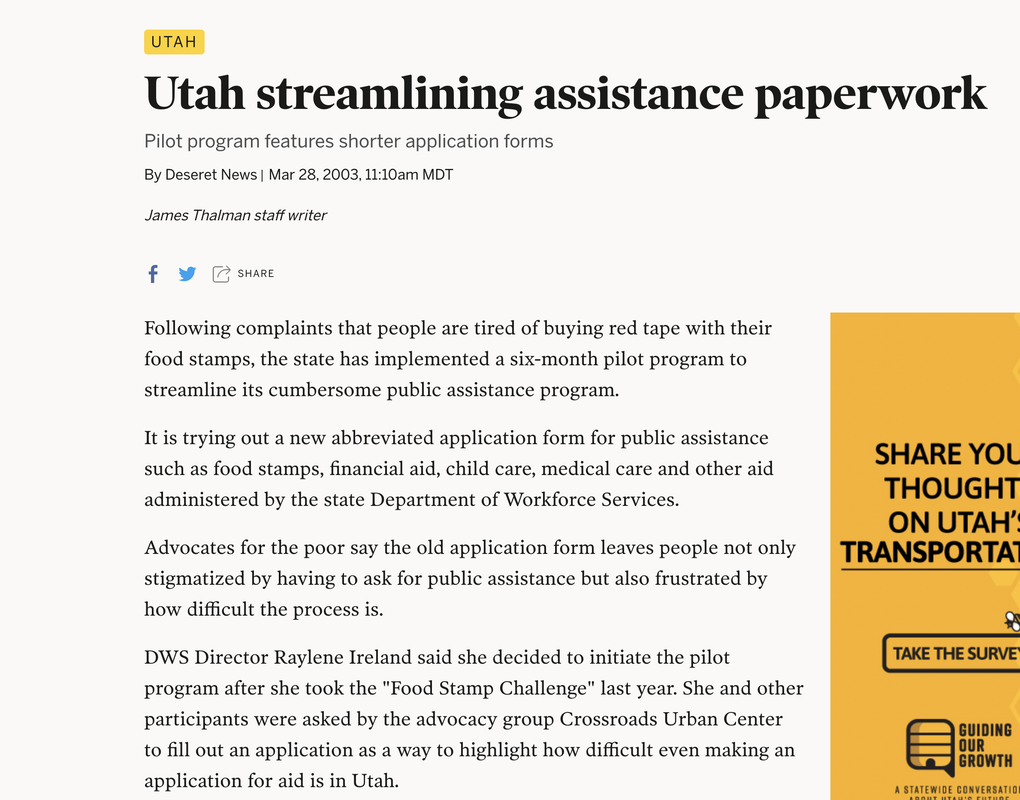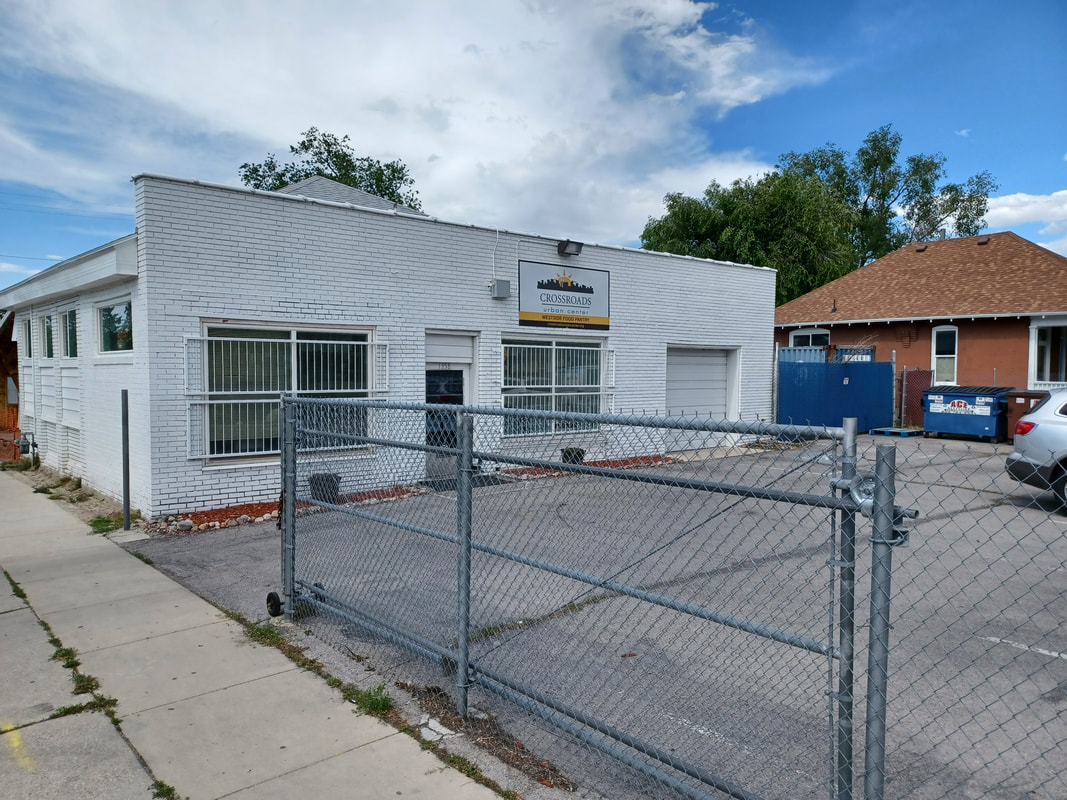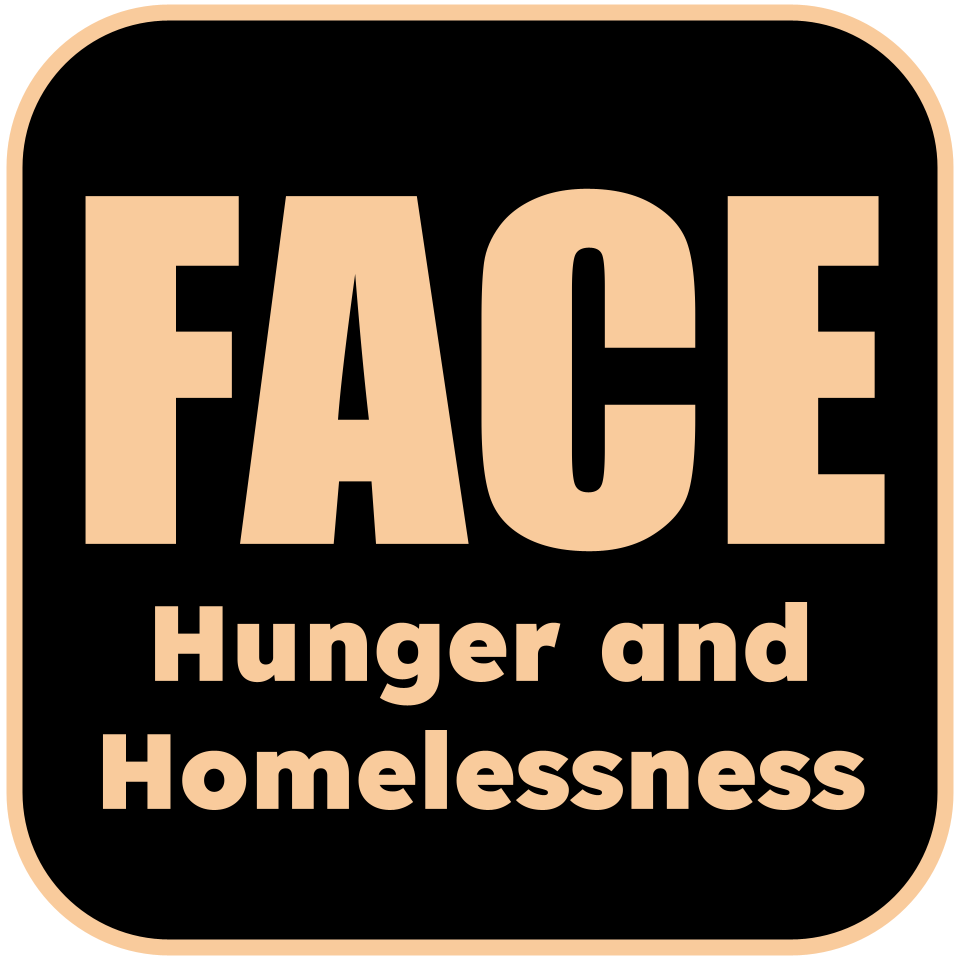| From the perspective of families at risk of becoming homeless due to the high cost of living, the current eligibility process for programs that alleviate poverty is broken. 16,418 Medicaid cases were closed in Utah during the month of July, 2023, due to paperwork problems. Almost 50,000 families with children who appear to be eligible for Medicaid and SNAP benefits are only enrolled in SNAP despite the fact that the average SNAP benefit for a family with children is $390 per month. Unfortunately, the phone number people can call to fix problems has an average wait time of 35 minutes. You can tell people are desperate to fix the problems with their cases because only 26 percent of the calls to this line end with the customer giving up and terminating the call. President Joe Biden has recognized that federally funded programs have overly cumbersome processes and so he has an initiative dedicated to "Reducing Time Taxes and Administrative Burdens". This initiative is looking at important things like how to share data collected for programs like Medicaid with agencies that determine eligibility for SSI/SSDI benefits and housing authorities that determine eligibility for housing assistance programs. Utah's Governor, Spencer Cox, has formed a task force to look at maximizing new technology to streamline and simplify customer experience. That task force is supposed to produce an action plan to the Governor by the end of this month. Since Governor Cox and President Biden both agree that it should not take an hour to complete an application if there is a way to get the same information in ten minutes, the Governor' task force should set big goals and work with the feds on them. Utah can cut the time it takes to apply for Medicaid and SNAP in half and the time it takes to recertify eligibility by even more than that. One big reason these changes are possible is that the Governor's Chief of Staff, Jon Pierpont, played a huge role in making even bigger changes 20 years ago. In 2002, the Department of Workforces services was five years old and the welfare reform bill of 1996 had led to a major decrease in the number of families receiving cash assistance. Unfortunately, participation in other programs, like SNAP (the called the "Food Stamp Program") and Medicaid also declined dramatically because of the paperwork burdens required to enroll in the program and the even bigger paper work challenges required to stay on the program. A group of food pantry clients that met at Crossroads Urban Center came up with four ideas for simplifying the process and presented those ideas to the Governor at that time, Mike Leavitt. To his credit, Leavitt's administration ultimately adopted all four of those recommendations. It is not an exaggeration to say that these changes reduced the time and paperwork burden for applying for Medicaid and SNAP in Utah by over 90 percent. Jon Pierpont played a leading role in implementing those changes and so the Governor should consider involving him in efforts to eliminate unnecessary procedural burdens that are placed on low income families now. In 2003 the paperwork was done with paper and keeping a family enrolled in programs that helped with food and healthcare required the death of acres of trees. Part of how the process was simplified at that time was moving toward digital records and reducing the need to submit the same documents. in person, every three months so they would be closer to the top of the pile in the file. Now, there are new opportunities to use technology to simplify processes. It is encouraging that both President Biden and Governor Cox are looking into how to maximize these new opportunities to make programs simpler to understand and navigate. Governor Cox and his team should aspire to make big changes that transform the system in customer friendly ways that same way Governor Leavitt did in 2003, |  This is not the first time that low income Utahns have felt the process for determining and maintaining eligibility for government programs was broken. In 2002 a group representing food pantry clients challenged the Governor at that time, Mike Leavitt, to fix a system that was not working for clients, To his credit, Governor Leavitt ultimately made all four of the changes proposed by advocates. |
|
EMERGENCY FOOD PANTRY
347 South 400 East Salt Lake City, UT 84111 801-364-7765 Monday – Friday 9:00 AM – 5:00 PM |
CROSSROADS THRIFT STORE
1385 West Indiana Avenue Salt Lake City, UT 84104 801-359-8837 Tuesday-Saturday 10:00AM-6:00PM |
CROSSROADS WESTSIDE FOOD PANTRY
1358 West Indiana Avenue Salt Lake City, UT 84104 801-935-4079 Monday-Friday 9:00AM - 5:00PM Food only (no emergency services) |

|
|
|







